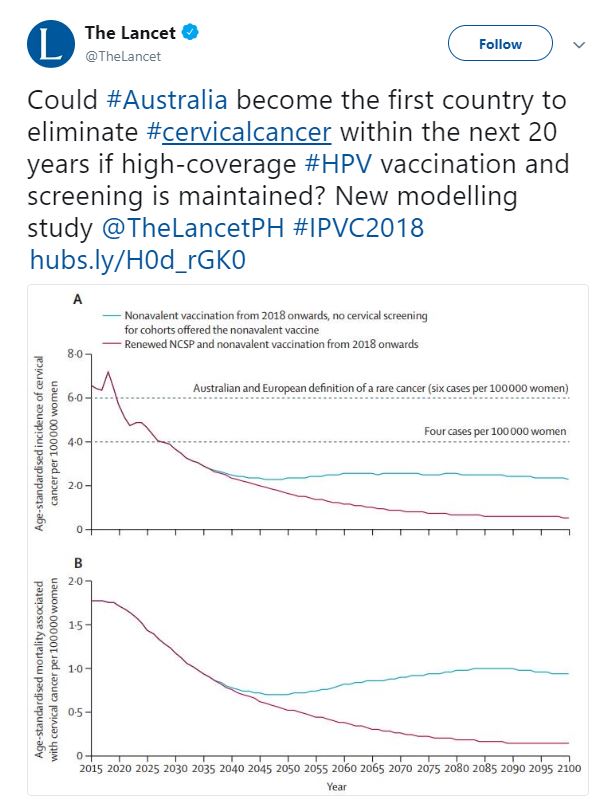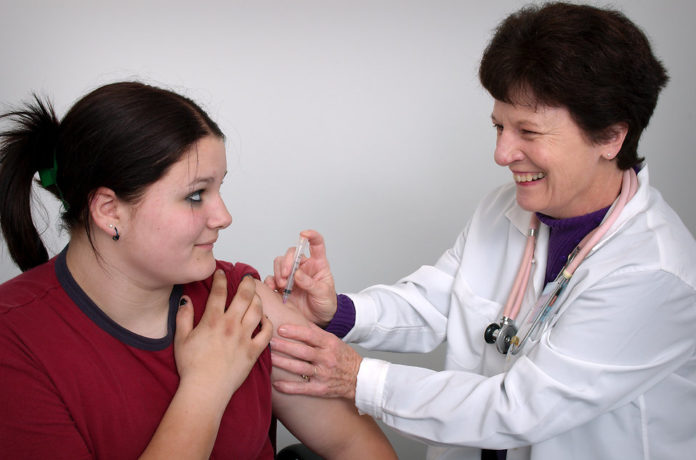Australia could be the first country to eradicate cervical cancer
Australia’s cervical cancer prevention program is highly effective and will eradicate the disease from the country’s list of public health problems in the next two decades, says a study.
According to a new study published by The Lancet, by 2028 fewer than four women in every 100,000 could be diagnosed with cervical cancer per year in Australia. The findings have predicted that by 2066, less than one woman per year could receive the test.

According to a report by the researchers in The Lancet, they predicted that there would be less than six new cases of cervical cancer per 100,000 women by 2022. By 2035, it would go down to four new cases per 100,000.
We will be paying special attention to the challenges of building on the Australian success in HPV control, in populations that are most vulnerable to HPV disease worldwide, including Indigenous communities and those in low and middle income countries
Cervical Cancer: Australia and the rest of the World
The current rate of cervical cancer in Australia is about seven cases in every 100,000. This rate is already quite low, about half the average of the world. Australia’s low cervical cancer rates are supposed to be a result of national disease prevention projects, including an effective Human Papillomavirus vaccination project targeting girls created in 2007. This project was later expanded to target boys as well. The vaccination program was in addition to already existing national cervical cancer screening program started in 1991.
Currently, cervical cancer is diagnosed in approximately 500,000 women every year around the world. The WHO says that the disease is also responsible for the deaths of almost 250,000 women, mainly in under-developed and deveopling countries.
According to the research, if the current rate of vaccination and screening is maintained, cervical cancer could be eliminated as a public health problem within the next 20 years.

What is Cervical Cancer
Cervical cancer is a type of cancer caused by the human papillomavirus, a sexually transmitted infection that targets the cells of the cervix. It’s the fourth most frequent cancer in women according to the data released by the World Health Organization. Furthermore, this type of cancer has a high mortality rate due to fewer symptoms which are hard to detect.
Despite the prevalence of cervical cancer and HPV in many regions of the globe, health experts say that cervical cancer is easy to prevent, it just takes some concentrated effort. Researchers on the Cancer Council of New South Wales predicted that cervical cancer should be eliminated within the next couple of decades if current efforts are sustained.
“We will be paying special attention to the challenges of building on the Australian success in HPV control, in populations that are most vulnerable to HPV disease worldwide, including Indigenous communities and those in low and middle income countries,” said Dr. Silvia de Sanjose, President of the International Papillomavirus Society.


